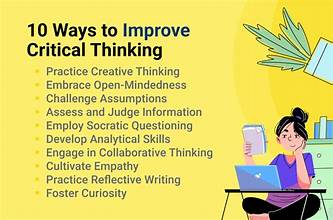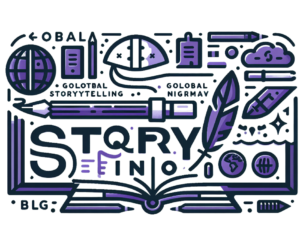Science fiction (sci-fi) is more than just an entertaining genre; it has the potential to significantly enhance critical thinking skills in children. As we move through 2024, the role of science fiction in education and cognitive development is gaining increased recognition. This article explores how science fiction fosters critical thinking and the emerging trends in its educational use.
The Cognitive Benefits of Science Fiction
- Encourages Problem-Solving: Science fiction often presents complex scenarios that require creative problem-solving. Children are exposed to futuristic technologies, moral dilemmas, and alternative realities, encouraging them to think outside the box and develop innovative solutions. For example, in a story about a dystopian future, a child might imagine new ways to address environmental issues or social inequalities.
- Enhances Imaginative Thinking: Sci-fi opens up worlds beyond the ordinary, allowing children to explore concepts that challenge their understanding of reality. This imaginative exploration is crucial for developing cognitive flexibility, as it requires children to adapt their thinking to new and often abstract ideas.
- Develops Analytical Skills: Sci-fi narratives often involve intricate plots and complex characters. Analyzing these stories helps children practice evaluating information, understanding character motivations, and making predictions about plot developments. These analytical skills are transferable to real-life situations and academic tasks.
- Fosters Ethical Reasoning: Many sci-fi stories delve into ethical and moral questions, such as the implications of artificial intelligence or genetic engineering. Engaging with these topics helps children develop a framework for ethical reasoning, as they consider the potential consequences of various actions and decisions.
Trends in Using Science Fiction to Enhance Critical Thinking
- Interactive Sci-Fi Learning Platforms: In 2024, there is a growing trend towards interactive platforms that use sci-fi narratives to teach critical thinking. These platforms often incorporate gamification elements, where children engage with storylines and solve problems in a simulated environment. For instance, educational apps and websites might use sci-fi scenarios to create puzzles and challenges that promote analytical and problem-solving skills.
- Integration into Curriculum: Educators are increasingly integrating science fiction into the curriculum to complement traditional subjects. This approach helps make abstract concepts more tangible. For example, sci-fi literature can be used to explore scientific principles, such as space travel or robotics, in a way that is engaging and relatable.
- Sci-Fi Clubs and Communities: The rise of sci-fi clubs and online communities dedicated to young readers is another trend. These groups often engage in discussions about sci-fi books, movies, and games, providing a platform for children to articulate their thoughts and engage in critical dialogue. This social aspect enhances their ability to analyze and discuss complex ideas.
- Cross-Disciplinary Projects: Schools and educational organizations are developing cross-disciplinary projects that combine sci-fi with other subjects. For example, a project might involve writing a sci-fi story that incorporates scientific concepts learned in class, or creating a visual representation of a futuristic technology. These projects encourage students to apply their knowledge creatively and critically.
- Parental and Educator Involvement: There is an increasing emphasis on involving parents and educators in guiding children’s engagement with sci-fi. Workshops and resources are being developed to help adults facilitate discussions and activities that enhance critical thinking. This collaborative approach ensures that children gain the maximum benefit from their exposure to sci-fi.
Practical Tips for Parents and Educators
- Select Appropriate Content: Choose sci-fi books, movies, and games that are age-appropriate and stimulate critical thinking. Look for narratives that challenge children’s assumptions and encourage them to think deeply about various issues.
- Encourage Discussion: After engaging with sci-fi content, discuss the themes, characters, and plot with children. Ask open-ended questions that prompt them to think critically about the story and its implications.
- Incorporate Sci-Fi into Learning Activities: Use sci-fi scenarios as a basis for creative writing exercises, science experiments, or problem-solving challenges. This hands-on approach helps reinforce the critical thinking skills developed through sci-fi narratives.
- Foster a Love for Sci-Fi: Encourage children to explore different sci-fi media and participate in related activities. A genuine interest in the genre can enhance their engagement and motivation to think critically.
Conclusion
Science fiction offers a unique and valuable tool for enhancing critical thinking skills in children. By presenting imaginative scenarios, complex problems, and ethical dilemmas, sci-fi fosters cognitive development and analytical abilities. As trends in educational technology and curriculum integration evolve, the role of sci-fi in nurturing critical thinking is becoming more prominent. By actively engaging with sci-fi content, parents and educators can support children in developing the skills necessary for thoughtful and innovative problem-solving.













